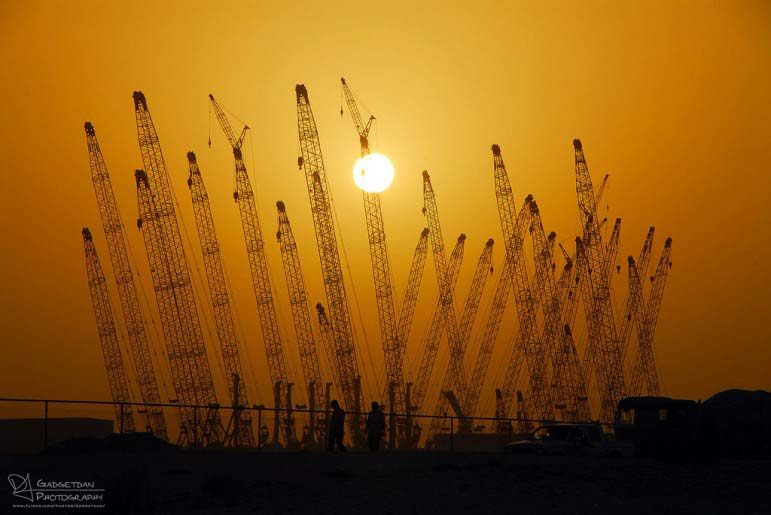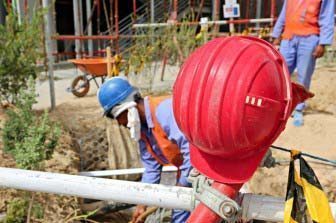
Investigators in Qatar are trying to determine what caused the wall of an excavation trench to collapse at a work site at Hamad Medical City yesterday, killing one man and injuring two others.
Four Indian nationals working for Al-Balagh Trading & Contracting were in the trench, which was roughly two meters deep, when the incident occurred, a divisional manager at the company told Doha News.
One man died at the scene after the soil fell on him, while two others were taken to Hamad Hospital for treatment, Ashghal said in a statement on Monday evening.

Trenches are commonly dug on construction sites to hold underground electrical wires or water and sewer pipes that would be connected to a new building.
The workers were constructing a new medical simulation center, located off Ahmed Bin Ali Street, in the vicinity of C-Ring and Al-Rayyan roads.
On its website, Al-Balagh said that the 13,000-square-meter educational facility is expected to contain classrooms, an auditorium and mock examination and operating rooms.
Ashghal – which is overseeing the simulation center project – said it would examine the safety measures that were in place and apologized for the incident:
“Ashghal is extremely sorry for this tragic accident, and it took immediate action when the accident happened as it stopped work on project site and started an extensive investigation from Ashghal’s side to know the reasons and identify the responsible parties and hold them accountable in case there was any failure from their side.
All safety procedures implemented on site by the project contractor and the project consultant will be reviewed, and Ashghal will take any necessary actions in this regards.”
Safety questions
It’s not known why the trench collapsed, or which safety measures were in place yesterday at the job site.
Internationally, including in the US, some form of protective measures – such as supports to prevent cave-ins – are required when trenches deeper than 1.5m are being dug.

Noting that a cubic yard of soil can weigh as much as a car, the US Labor Department calls an unprotected trench “an early grave.”
Human rights organizations have previously criticized the safety conditions on development sites in Qatar.
In its 2013 report on the country’s construction sector, Amnesty International documented several shortcomings, such as the failure of some companies to provide workers with helmets, and concluded:
“There is evidence that employers in the construction industry fail to protect health and safety … the fact that some employers do not appear to be taking their health and safety responsibilities seriously is clearly of great concern given the available data about incidences of serious occupational injury, which are the second leading cause of trauma admissions at Hamad General Hospital after major vehicle crashes.”
However, some employees involved in expanding HMC’s campus described a strong culture of safety on this particular job site.
Cheryl Mariano, a subcontractor working on a different part of the property, said she and her colleagues are instructed to take necessary precautions on a daily basis.
“This (accident) was not expected,” she told Doha News. “No one is allowed to work without a safety officer on site. From the smallest things to the biggest issue, we as subcontractors are always reminded of safety.”
Thoughts?







